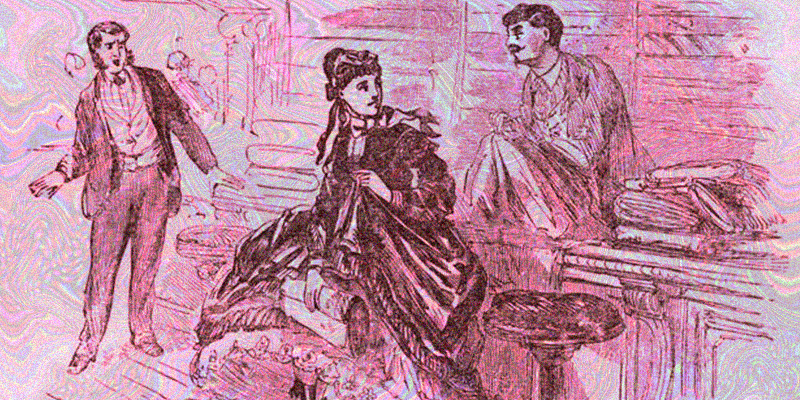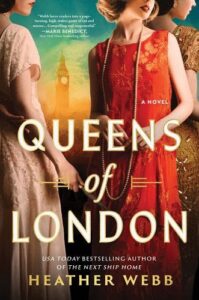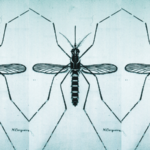Imagine yourself stepping back in time a hundred years, traveling to London. North of the Thames, the wealth lived amid the beautiful gardens, fancy department stores, and night clubs. South of the winding waterway that divides London in two, the neighborhoods weren’t so posh. Lambeth, Southwark, and the Elephant & Castle neighborhoods brought shuttered munitions factories leftover from the first world war. Brothels abounded. Trash blew down the unwashed streets, and grungy hovels and falling down apartment buildings populated nearly every block. Tenants were migratory, running out on their rent because they simply couldn’t afford it. Poverty had reached new heights, and the air crackled with a new kind of energy leftover from the war—an overflow of loss, anger, and the swift degradation of the social classes. There also weren’t enough police.
It was a perfect setting for criminal activity.
Enter Diamond Annie, one of the most renown female thieves in UK history and leader of the Forty Elephants, an all-female gang. It’s 1925, height of the roaring twenties, and Diamond Annie trains her girls not only on the best shoplifting practices and other cons, but on how to use a blade. She wouldn’t dream of leaving home without her blackjack razor in case any unexpected scrapes with the police, or a scoundrel, arises. Thanks to Diamond Annie, the Forty Elephants are the strongest, most clever female shoplifting ring London has ever seen. These are real women, a real gang, with a real need to survive.
I was completely captivated by the history of this all-female crime syndicate, and the fascinating ways they duped the street police at the Met (Metropolitan Police). I began a little preliminary research after discovering them in an article about London, and the next thing I knew, I found myself in the feverish throes of writing my new novel, Queens of London.
The Forty Elephants (also known as the Forty Thieves in earlier decades) can be traced as far back as the Victorian era, a time when women wore voluminous skirts and overcoats, and in the case of the all-girl gang, special pantaloons sewn with large pockets. The many layers and pockets made it easy to snatch a slip of silk or a strand of pearls and stash them in their undergarments. But these brazen women went beyond the easy trinkets and were said to have lifted entire gowns, or bolts of fabric when the situation called for it. They were a brazen, bawdy bunch that also seduced men while looting their wallets, or falsified documents to obtain work, where they quickly emptied the till or made off with the silver. Like any organized crime, the Forty Elephants had something of a system in place, but it wasn’t until Alice Diamond, aka Diamond Annie, came into power and orchestrated more intricate and demanding cons that the gang flourished. She was excellent at reading people and used her skills to not only keep her girls “in check,” but to dupe shopkeepers and the police alike.
Diamond Annie made for an intriguing main character. Part ruffian, part domineering mother hen, she also happened to believe her winnings served one major purpose: to indulge in the luxuries her class couldn’t afford. The Forty Elephants may have lived in the seedier neighborhoods of London, but they dressed to the nines in flapper attire, flaunted baubles and furs, and frequented the famed clubs in 1925 SoHo. In Queens of London, Diamond Annie goes beyond the indulgences of the luxuries that she covets. She’s on the make, looking for a home base for her girls and ultimately, to expand her dark empire from the west end department stores to other cities in southern England.
A story like this wouldn’t be complete without portraying the other side of the law. One of the first female police in Britain emerges at the same time, fresh from the battlefields of WWI where she acted as a nurse. Lilian Wyles began her stint in law enforcement in a volunteer patrol and swiftly became one of the “real” and best policewomen at Scotland yard. In fact, down the road, she earned a promotion as one of the very first female chief inspectors. Things weren’t easy for policewomen in 1925 Britain. The already-small troop of women was being whittled away by the government and those who didn’t believe women had a place in law enforcement. It was in these circumstances that Lilian Wyles must prove her worth—and bag a worthy criminal to gain respect.
In Queens of London, Diamond Annie and Lilian’s worlds collide in the midst of a major heist. And in the meantime, they cross paths with a half-Indian orphan on the run who is grappling with her identity and where her next meal will come from, as well as a beautiful, underestimated shop clerk. Fact and fiction mingle in an atmospheric, rollicking, and sometimes-tender tale that I hope will capture the imaginations—and the hearts—of readers as much as it did mine.
***


















